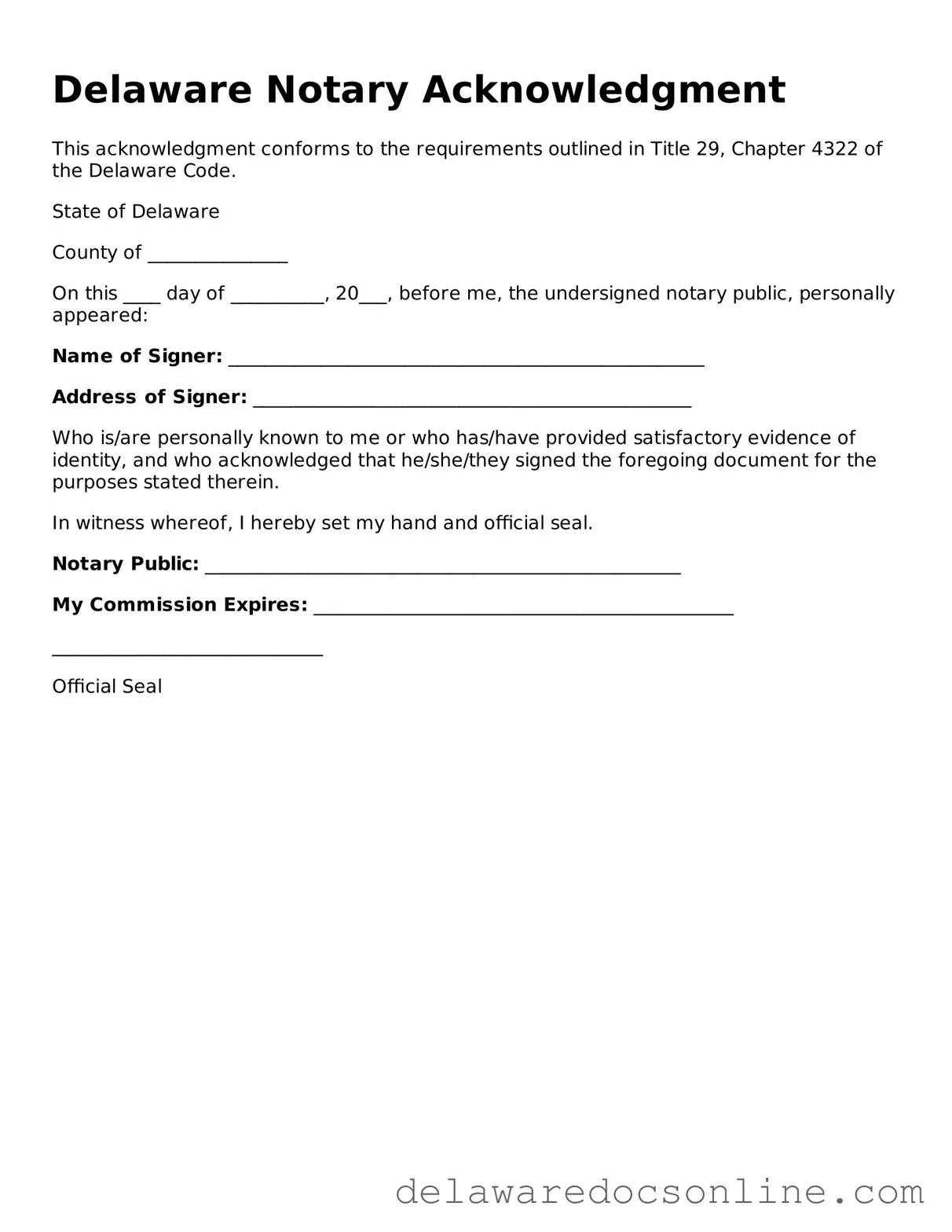Attorney-Verified Notary Acknowledgement Document for Delaware
The Delaware Notary Acknowledgement form is a document that verifies a person's signature on a legal document. This form is crucial for ensuring that the signer is who they claim to be and that they signed willingly. Understanding its purpose and requirements can simplify many legal processes.
Make Your Notary Acknowledgement Now

Attorney-Verified Notary Acknowledgement Document for Delaware
Make Your Notary Acknowledgement Now

Make Your Notary Acknowledgement Now
or
⇓ PDF File
Need speed? Complete the form now
Edit, save, download — finish Notary Acknowledgement online with ease.